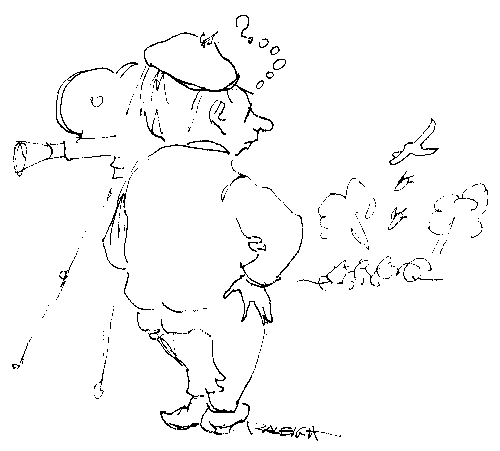A
Bad War
By
HENRY P. RALEIGH
ART
TIMES December 2006
 |
A YEAR AGO, and in a prophetic mood of sorts, I wrote an essay titled “Hollywood Goes to War” (ART TIMES Jan/Feb 2006). In a moment of profound meditation as well as mulling (although my wife believes I’m napping, I am really mulling and meditating to beat the band) it occurred to me that I had ended the essay on a question: namely, how will Hollywood deal with all this Iraq business? Will the studios pussy-foot around it for a long time before belatedly taking a stand just as they did for the Viet Nam years? Will they more-or-less ignore the matter as they did for the Korean War, springing for but one major production well after the conflict had ended?
Hollywood prefers, of course, a good war, meaning a war that everyone is happy with and it’s perfectly clear who the winner is. There is, you know, a warehouse somewhere in Los Angeles stuffed full of ready-to-go war clichés if it’s the right kind of war. It is too bad that we haven’t had a resoundingly good war since the 1940’s and how long can the studios keep turning that one over, I ask you?
Clint Eastwood is giving it a try with “Flag of Our Fathers” and it hasn’t made box office expectations. Well, what can you expect? After all, we have a few generations of filmgoers around who couldn’t tell World War II from the War of 1812. No matter, though. The war that counts is the one that enlivens the evening cable news. And that one is a good war or a bad war and therein lies Hollywood’s dilemma just as it had in past wars. The Gulf was too brief, one supposes, to compel filmmakers to select an appropriate response, settling instead for a few neutral efforts. “Three Kings” in 1999 was actually a gold heist in a war setting and “Blackhawk Down” in 2001, based on the 1993 disaster in Somalia, was an old time blood and guts film and was not out to make any political points. “Jarhead” in 2005 was content to make the sole point that combat isn’t necessary to push you over the edge; being around Jake Gyllenhaals for two hours was more than enough.
Well sir, after some dithering, allowing television news to shoulder the political burden, Hollywood, seeing it could not wait for the Iraq conflict to ever end, has decided to take its side on a “bad” war. There was probably little choice about this considering how many of its star celebrities had taken to loudly and heatedly denouncing the issue. Still, filmmakers had run into a sticky wicket here. What had initially seemed a victory all too soon turned into a messy insurgency war thus turning cheers to howls of protest.
So what is left for the poor filmmakers who wish to get in on the action and show disapproval without necessarily dishonoring the men and women who must surely be the victims of something, for goodness sake? The last of the Viet Nam war films revealed a fondness for portraying soldiers as somewhat on the crazed side, but that’s politically risky nowadays. The usual clichés of war films gathering dust in that Los Angeles warehouse — patriotic sacrifice, fighting the good fight, coming-of-age in glory — won’t sit well in this thorny situation.
How about a bad war does bad things to good people? (Is the corollary of this, a good war does good things?) And so out they come — in current release is “The Ground Truth”, half actual battle footage and descriptions of alleged atrocities, the second half the anguish of returning veterans. Due shortly “Home of the Brave” (the third time this title has been used satirically) stars Samuel L. Jackson attempting to readjust to a normal life after returning from Iraq. Waiting for distribution is “Grace is Gone”, John Cusak coping with the death of his wife lost in the line of duty in Iraq. Filming is underway for “Stop-Loss” with Ryan Phillippe refusing to report for a second tour on the Iraq front; “No Time for Glory” has Harrison Ford, a film to demonstrate the immoral connection between war and politics in the Battle of Fallujah; “In the Valley of Elah”, a father’s search for his son gone AWOL after return from Iraq. In planning is “Against All Enemies” based on the book by Richard Clark, Sean Penn a possible lead, no need to guess how that will turn out. Oh, those epic battle scenes of yore are out — PTS is in.
More of the same will surely hit the movie theaters for it is reported that Tom Cruise, Kirsten Dunst, and Johnny Depp all have Iraq War projects in mind. The only think the studios have to worry about is if somehow Iraq does come to a happy conclusion — that would be bad for business, all right.
